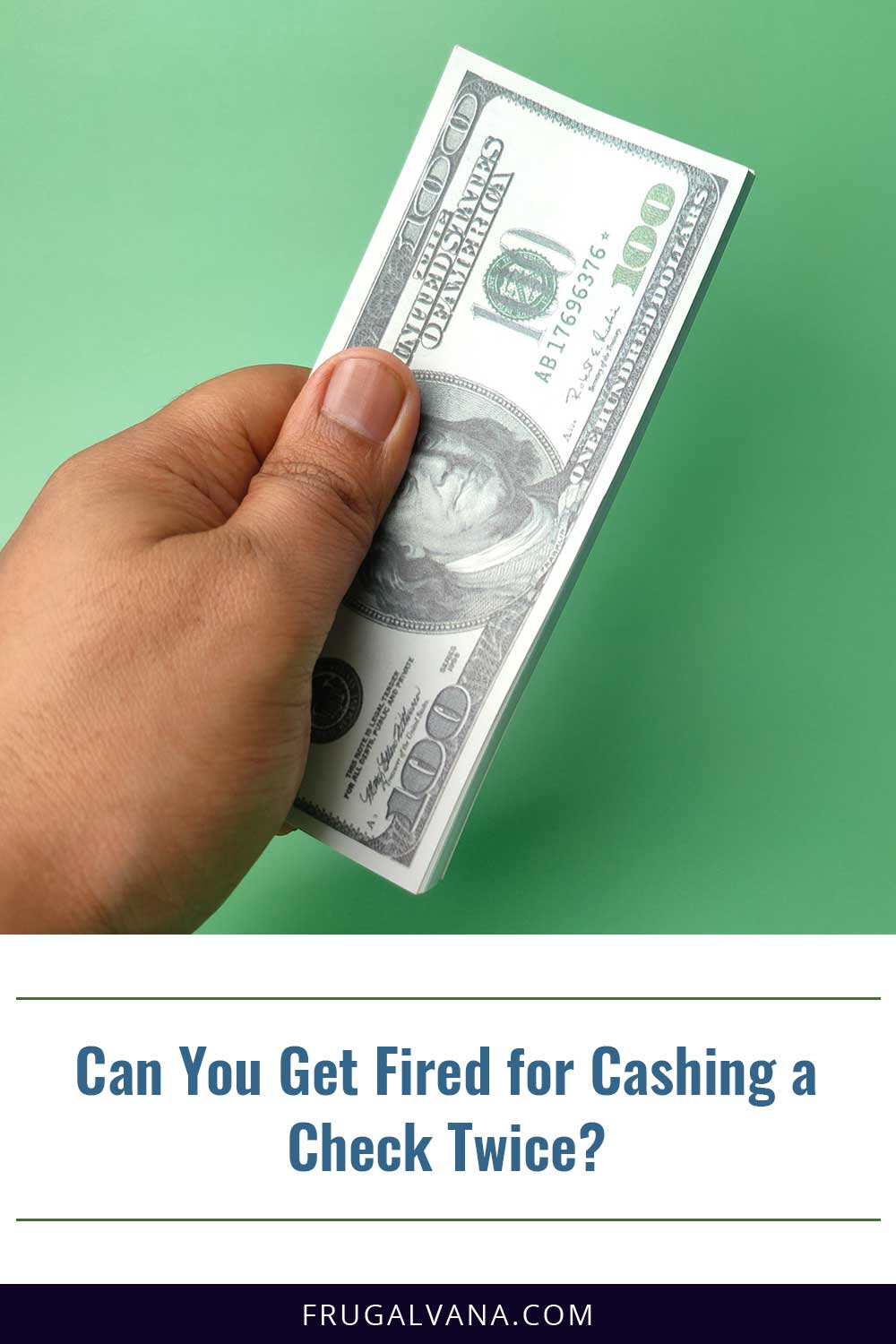When you look around at the world of personal finance as we know it today, it may appear that the door is rapidly closing on the days of pen and paper check transactions.
However, we currently live in a world of electronic transfers and mobile deposits, and we may be looking at even further evolution.
Despite the dynamic landscape of personal finance, some classic risks and issues are still associated with check transactions. In addition, some new challenges exist when financial institutions bring technology further into the equation.
With the rise of mobile deposits and bank apps, there have been increasing occurrences of checks being cashed twice. This is a fraud, and there can be serious legal consequences. Even if it’s accidental, your job may still be in jeopardy.
Read below to learn more about what to do if you cash your check twice.
What if it Was an Accident?
So, you accidentally deposited your check twice. Accidents happen. The chances are high that your bank has *not* had only perfect customers during their time in business. The good news is that there is an easy solution to your problem.
You can, most easily, make things right with your financial institution by writing a check for the amount deposited, addressed back to the bank. It is likely that the bank will just accept your repayment.
When you make your redeposit, simply make sure to obtain the exact amount written from the bank and to take a picture of the check before depositing.
You can, however, still be fired for cashing your check twice. Your employer can fire you for attempted theft. They do not necessarily have to believe that it was by accident. You may be able to negotiate, but know that your employer has the right to terminate you.
Can Cashing a Check be Traced?
You may be wondering just how traceable your accidental or non accidental double deposit is. Can your actions be traced? The answer: yes. Your bank has a record of your deposits and withdrawals and can keep track of you in that way.
Your employer has a record of what you were paid and when. They will be able to tell you that you have cashed your check twice. Your best course of action will be to attempt to make things right with your employer and your bank and to regain their good graces.
Who is Liable for a Check Cashed Twice?
If your check is cashed twice, which is considered fraud, you will be the first person from which the payment is requested. In the situation where you cannot pay back the funds, the bank with which you deposited the check is liable for the funds.
You may still have legal penalties if you are not able to come up with the funds.
Your bank is liable for the funds under the Check 21 Act, which will be discussed later in the article. Your second deposited check, being accepted by your bank, designates them as the liable party.
As far as employment is concerned, you are liable for your actions in depositing your check twice. As far as your employer is concerned, you attempted to defraud them. Therefore, you will be liable for your actions regarding the continuation of your employment.
Can You Initiate a Dispute About It with the Bank?
If the mistake was on your financial institution’s part, you could initiate a dispute with them. By law, you must initiate the dispute within the first 60 days after your bank statement first shows the error in question.
Discuss the issue with your bank. Suppose they determine that the error indeed occurred. In that case, you may be able to be repaid the amount improperly deposited and be able to repay the money to your employer or staffing agency.
What is a Check 21 Act?
The Check 21 Act authorizes the creation of a substitute check that is as legal as the original in the case of the misplacement of checks. Though this enables the recovery of lost checks for the recipient, there are certain liabilities attached to certain entities, especially banks.
The most common method of “double dipping” one’s check nowadays occurs in cases in which the check’s recipient will first cash their check online via their financial institution’s mobile app. The recipient will then cash the physical check, in person, at their bank.
Because the financial institution’s mobile app has created a duplicate, “substitute” check upon the customer’s mobile deposit under the Check 21 Act, the bank is responsible for any funds lost in a double-cashing situation.
Final Thoughts on If You Can Get Fired for Cashing a Check Twice
Essentially, you do not want to be in this situation. So your best course of action, no matter how dated a traditional check register may seem, is to keep a careful, detailed record of your deposits and withdrawals, independent from your bank statement.
It is also in your best interest to keep track of your deposited physical checks carefully. Marking them, or discarding them, once they’ve been properly deposited will keep them from becoming mixed in with new and undeposited checks.
Keeping a careful record of your financial activity and meticulously separating and discarding used checks from undeposited ones, will help safeguard you from double-cashing situations. In addition, this will help to keep your account and your job safe and secure.

